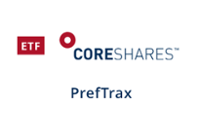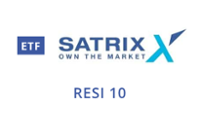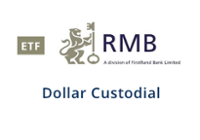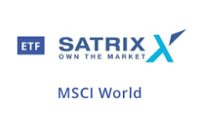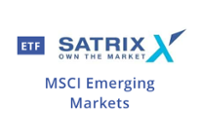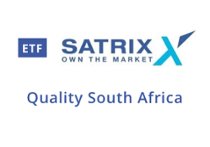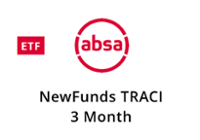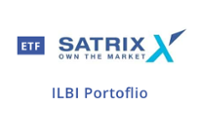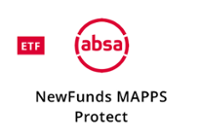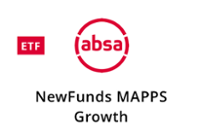Intellidex ETF Reviews for January 2019
2018 was marred by relatively high volatility and risk aversion in financial markets. Most equity markets – local and foreign – ended in the red as a result. In SA, only resources and bond funds delivered positive returns.
An equally weighted portfolio of non-commodity JSE-listed ETFs lost 3.73% during 2018, on par with Intellidex’s selection of ETFs. Funds that track local assets declined 7.86% on average while those that track global markets grew 5.81%, thanks to the rand which weakened.
The local view
South African ETFs had a rough year. Funds that track the top 40 index on the JSE fell by between 8.31% (Ashburton Top 40 ETF) and 12.84% (Absa NewFunds Swix Top 40 ETF). Even property stocks and some rand hedges, which are typically countercyclical, failed to hedge the funds against poor conditions in SA.
Contrarily, fixed income and resources funds fared relatively well. CoreShares PrefTrax came out on top with an impressive 19.24% return. Satrix Resi took second place with a 16.32% return while NewFunds S&P GIVI South Africa Resources ETF was third with a return of 10.54%.
The international view:
For funds containing international assets, the best performer was the FirstRand US Dollar Custodian Certificate ETF, which invests in US Treasuries. It rose 16.36%. At the other end of the spectrum, the Sygnia/Itrix FTSE 100 suffered a 9.1% loss on the back of the Brexit crisis.
On the international scene there is a lot of noise characterised by a confluence of conflicting but largely weak economic data. Some analysts argue that this might turn out to be a good omen as governments may be compelled to pursue loose economic policies. This thinking may have birthed the equities rally in the first week of the year after the US Federal Reserve signalled a more accommodative monetary stance on the back of weaker-than-expected economic readings.
ETFs featured
International:
We also split international equities into developed and developing markets:
Developed:
In this category we like the Satrix MSCI World Equity Feeder ETF (up 5.54% in 2018) and the Ashburton Global 1200 Equity ETF (up 4.37%). They diversify their exposure across the US, Europe, Japan, Canada and Australia. With more than half of the funds invested in US stocks, investors will still have substantial exposure to the US. Satrix MSCI World beats Ashburton Global 1200 Equity ETF on costs.
Other more focused international equity themes include property funds and technology funds. These are worth considering for tactical or other investor-specific reasons.
Emerging:
The choice in this segment is limited to two funds: Satrix MSCI Emerging Markets and the Cloud Atlas AMI Big50. The latter was the best performer in 2018 with a return of 10.18%. Nonetheless, we still prefer the Satrix MSCI Emerging Markets ETF (down marginally by 0.51%) because of its diversification. Unlike the Cloud Atlas fund which invests in African stocks only, the Satrix fund invests in a wider range of emerging economies, including some of the fastest-growing markets such as China and India. In addition, the fund is the cheapest within its category, boasting a TER of 0.4%.
Domestic:
Local equities have been disappointing for quite some time now. The JSE all share index gained a measly 13% in the five years to end-December 2018. Unfortunately, this trend is likely to continue this year. SA’s economy is expected to remain sluggish while weak data out of Asia and Europe at the start of the year also suggest a global economic slowdown.
While there are many ways to survive depressed markets, investing in funds with quality defensive stocks could reduce losses in declining markets, while generating decent returns when the markets rise. In line with that view, we change our pick in this category from the Ashburton Equally Weighted Top 40 fund to the Satrix SA Quality ETF.
Bonds and Cash:
Bonds and cash were star performers in 2018. This is because of their low risk attributes: investors tend to gravitate to lower-risk asset classes in choppy markets. We think bonds will remain investors favourites in 2019 given the rising uncertainty in equity markets. However, expected interest rate hikes may dent the performance of some bonds.
Short term pick (less than a year):
The NewFunds TRACI 3 Month (up 6.92% during 2018) is a natural choice because it is least sensitive to sudden adverse interest rate movements. It is like earning interest on your cash at the bank with a minimal possibility of capital loss.
Long-term pick:
However, for a longer investment horizon, protecting your investment against inflation is paramount. We therefore maintain our choice of the Satrix ILBI ETF (up 0.19%), which has the lowest expense ratio in this category.
Furthermore, nominal bonds add a add a unique risk-return dimension that differs from inflation-linked bonds and improves overall portfolio performance. As with equities, investors also need to diversify their bond portfolios internationally. We think investors can choose between Stanlib Global Bond ETF or Ashburton World Government Bond ETF. They track investment-grade sovereign bonds mostly issued by the US, UK, Japan and selected European countries. However, the Stanlib Global Bond ETF has the lowest TER. Both are less than a year old.
Dividend:
If you rely on your investment income for day-to-day expenses you may want to allocate a portion of your portfolio to ETFs that have a high distribution ratio. Two funds come naturally to mind: the Satrix Dividend Plus and CoreShares S&P South Africa Dividend Aristocrats. But property funds tend to have even higher payout ratios.
We maintain our choice of the Stanlib SA Property ETF (down -25.40%). The Stanlib fund boasts the lowest TER in the segment. However, investors can also consider foreign property ETFs. The Sygnia Itrix Global Property ETF (up 10.46%) is the cheapest in this category.
Multi-Asset:
If you find the process of diversifying your portfolio daunting, these two ETFs do it for you. They combine equities and bonds to produce a diversified portfolio for two investor archetypes, designed to meet two different risk appetites:
Mapps Protect is more conservative, suitable for conservative, usually older, savers. Lost 4.13% in 2018.
Mapps Growth suits investors with a long-term horizon. Declined 8.95% in 2018.
This is just a sneak peak at the insights Intellidex have prepared for you. To see more in-depth analysis and market insights (global and local), check out the full note here.
Background: Exchange-traded funds (ETFs)
Exchange-traded funds (ETFs) are passively managed investment funds that track the performance of a basket of pre-determined assets. They are traded the same way as shares and the main difference is that whereas one share gives exposure to one company, an ETF gives exposure to numerous companies in a single transaction. ETFs can be traded through your broker in the same way as shares, say, on the EasyEquities platform. In addition, they qualify for the tax-free savings account, where both capital and income gains accumulate tax free.
Benefits of ETFs
- Gain instant exposure to various underlying shares or bonds in one transaction
- They diversify risk because a single ETF holds various shares
- They are cost-effective
- They are liquid – it is usually easy to find a buyer or seller and they trade just like shares
- High transparency through daily published index constituents
If you thought this blog was interesting, you should also read:
Intellidex Reviews:
November 2018 Picks
Disclaimer
This research report was issued by Intellidex (Pty) Ltd. Intellidex aims to deliver impartial and objective assessments of securities, companies or other subjects. This document is issued for information purposes only and is not an offer to purchase or sell investments or related financial instruments. Individuals should undertake their own analysis and/or seek professional advice based on their specific needs before purchasing or selling investments. The information contained in this report is based on sources that Intellidex believes to be reliable, but Intellidex makes no representations or warranties regarding the completeness, accuracy or reliability of any information, facts, estimates, forecasts or opinions contained in this document. The information, opinions, estimates, assumptions, target prices and forecasts could change at any time without prior notice. Intellidex is under no obligation to inform any recipient of this document of any such changes. Intellidex, its directors, officers, staff, agents or associates shall have no liability for any loss or damage of any nature arising from the use of this document.
Remuneration
The opinions or recommendations contained in this report represent the true views of the analyst(s) responsible for preparing the report. The analyst’s remuneration is not affected by the opinions or recommendations contained in this report, although his/her remuneration may be affected by the overall quality of their research, feedback from clients and the financial performance of Intellidex (Pty) Ltd.
Intellidex staff may hold positions in financial instruments or derivatives thereof which are discussed in this document. Trades by staff are subject to Intellidex’s code of conduct which can be obtained by emailing mail@intellidex.coza.
Intellidex may also have, or be seeking to have, a consulting or other professional relationship with the companies mentioned in this report.
Subscribe To Our Research Portal
Search all research
Let Us Help You, Help Yourself
From how-to’s to whos-whos you’ll find a bunch of interesting and helpful stuff in our collection of videos. Our knowledge base is jam packed with answers to all the questions you can think of.
